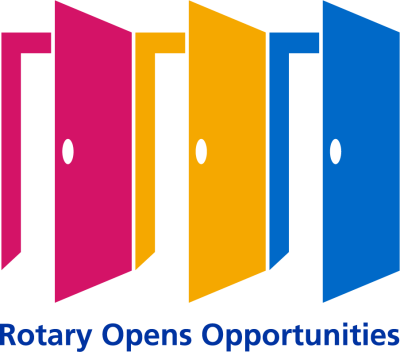All We Are Saying is Give Peace Fellows a Chance
.jpg)
Iranian-born journalist Ali Reza Eshraghi, 35, is the Iran project manager at the Institute for War and Peace Reporting and a teaching fellow in the Department of Communication Studies at the University of North Carolina at Chapel Hill. After working as an editor at several Tehran newspapers – all of which were eventually banned or shut down by the government – he became a visiting scholar at the University of California, Berkeley, and met Pate Thomson and Mary Alice Rathbun, of the Rotary Club of Berkeley. In 2012, he completed his studies as a Rotary Peace Fellow at the Duke-UNC Rotary Peace Center.
The Rotarian: You were born shortly before the Iranian Revolution of 1979 and the start of the Iran-Iraq War in 1980. What was it like growing up in that time and place?
Eshraghi: It was a time of turmoil and dramatic changes. I was born and raised in Isfahan, an ancient city with breathtaking architecture, spectacular palaces, and beautiful boulevards. But it was not left unharmed by Iraqi air raids and missiles. Some of my classmates lost their lives in the air raids.
TR: How has the atmosphere for journalists changed since you worked in Tehran?
Eshraghi: Journalism in Iran is like navigating a minefield with your eyes closed. You always feel you are in danger. Everyone suffers from "doorbell syndrome" – the fear that the security forces will come to arrest you. I was not in Iran in 2009, following the disputed presidential election, but many journalists were arrested then and are still in jail. When Hassan Rouhani became president in 2013, things began to improve somewhat, but fears and concerns still haunt Iranian journalists.
TR: What is the Institute for War and Peace Reporting?
Eshraghi: It is a nonprofit media development organization with field offices in different parts of the world – particularly in conflict zones. It tries to help people communicate with one another under challenging circumstances, to enable them to hold their governments accountable and to make better decisions based on accurate information.
TR: Are you optimistic about changes in Iran's political climate?
Eshraghi: I am cautiously optimistic. I am mostly optimistic about the people of Iran, who helped bring moderates to power in the country. Iran is in a region full of conflicts – the bloody counterrevolution in Egypt, tensions in Tunisia, insecurity in Libya and Yemen, the violent civil war in Syria, the crackdown on the democratic movement in Bahrain. The people of Iran, in such an environment, realized their demands in the most civil of manners. After all, elections are a century-old tradition there.
TR: What are the obstacles to peaceful relations between Iran and the West?
Eshraghi: Iran and the United States do not know each other well, and misunderstandings have led to bad policymaking. The first step in conflict resolution is to get each side to stop trying to force the other side to accept unilateral demands. The other side should be given an offer that it can consider saying yes to without feeling that it is capitulating.
TR: What would you like people to know about Iran?
Eshraghi: Iran, like any other country, is a complicated place. In the U.S. media, stories are told within a simplistic framework of good and evil. This is not the reality. Society and government are entangled; sometimes they cooperate with each another, and sometimes the government is forced to accept the demands of society.
Learn more about Rotary Peace Fellowships

